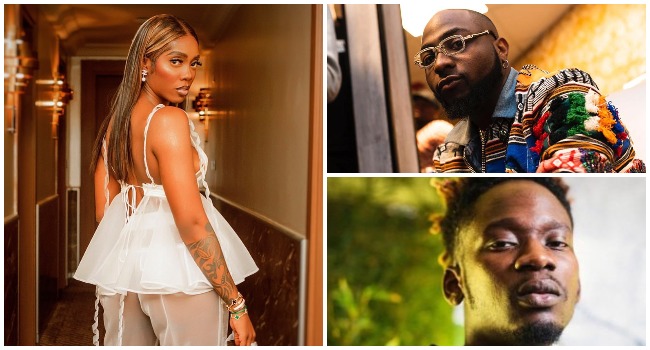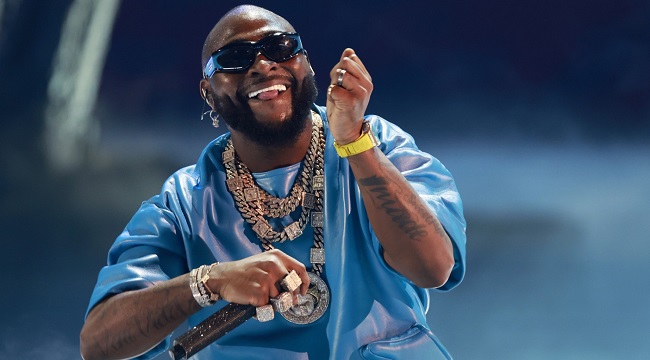
Nigerian music heavyweights, Davido, Tiwa Savage, and Mr. Eazi covered the May edition of the American magazine Billboard, where they discussed afrobeat and stereotypes in the music industry.
An ecstatic Davido (real name David Adeleke) tweeted, “The forces that unite us are intrinsic and greater than the superimposed influences that keep us apart.” – Africa Must Unite!.”
He then proceeded to share the photos of him alone on the cover of the magazine, another with Tiwa Savage shot by Lakin Ogunbanwo, and a solo shot of Mr Eazi shot by Seye Isikalu.
In their interview with the magazine, the trio covered a lot of grounds, starting with the impact of the COVID-19 pandemic on their music, the afrobeat renaissance, and the stereotyping of African acts by the west.
Davido in his response said, “Man, it’s been crazy because my fiancée actually tested positive [for COVID-19 but has since recovered]. I was on tour in America, with six shows done and 19 sold-out shows left. We were in Denver sitting in my hotel room listening to the news. We looked at each other and said, ‘Yo, let’s just tell ourselves the truth: It’s about to be a wrap.’”
For Tiwa Savage, it was difficult wrapping her head around the situation in the beginning.
“I’ve been giving out food to people around my neighborhood. I can quarantine for a month or a couple of months, but some of these people don’t even have food for tomorrow.”
On his own part, Mr. Eazi said he has been using the lockdown to tighten some business knots.
“Musically, it’s been an eye-opener for me. During this lockdown, I’ve not recorded any new music. But I’m on Zoom calls almost the whole day working on my business or [talking] with one of my new artists, listening to records and setting up release plans.”
While Tiwa Savage attributed the phenomenal rise in afrobeats to social media, Davido said it is simply the unique flow of the music. Mr Eazi thought different: “Hey, I’m African, it’s great to be African, and we’re flaunting it.”
When asked about the stereotypes the west still had about Africa, Davido recalled an incident in Los Angeles where an interviewer asked him whether afrobeats is a phase. He called the question “ignorant,” and pointed out that “like everywhere else, there are good parts and bad parts in Africa. There are places even in America that look worse.”
Tiwa Savage’s anger is about the west’s belief that “Africans don’t speak English,” while Eazi thinks it can be linked to ignorance. He added that not all music that comes out of Africa is afrobeats, “…There are a lot of different tribes — the language and culture are as different as the rhythms and BPMs of the music. You can have a hit song in Nigeria, but it won’t be a hit in Ghana.”




